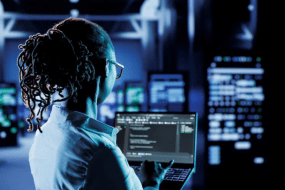In today’s rapidly evolving world, the way we educate ourselves has transformed dramatically. The internet, with its vast repository of information, has become the cornerstone of 21st-century education. With the keyword “Internet research” at the forefront, this article delves into the significance and intricacies of harnessing the power of online research for a holistic learning experience.
Introduction
The traditional model of education, which predominantly relied on textbooks and classroom lectures, has undergone a seismic shift in the 21st century. The advent of the internet has democratized knowledge, making it accessible to anyone with a connection. In this article, we explore how internet research has become the linchpin of modern education, empowering learners to explore, analyze, and synthesize information like never before.
The Evolution of Education in the Digital Age
Education has evolved from being confined to brick-and-mortar classrooms to a dynamic, digital landscape. The internet has played a pivotal role in this transformation. With the world’s knowledge just a click away, learners can transcend geographical boundaries to access diverse perspectives and resources.
The Role of Internet Research
Access to a Wealth of Information
The internet is an information treasure trove, hosting a vast array of academic papers, articles, videos, and more. Students and educators can tap into this wealth of information to deepen their understanding of virtually any subject.
Enhanced Critical Thinking
Engaging in internet research necessitates critical thinking skills. Learners must evaluate the credibility of sources, discern biases, and synthesize information from multiple perspectives. These skills are invaluable in the digital age.
Internet Research Skills: A Necessity
Evaluating Credible Sources
In an era of information overload, the ability to discern credible sources from unreliable ones is paramount. Internet research equips individuals with the skills to separate fact from fiction.
Effective Keyword Searching
Mastering the art of effective keyword searching is essential. Knowing how to frame search queries can significantly impact the quality and relevance of the information retrieved.
Data Mining and Analysis
Internet research goes beyond surface-level understanding. It involves data mining and analysis, enabling learners to draw meaningful insights from raw data.
Benefits of Incorporating Internet Research in Education
Fostering Self-Directed Learning
Internet research empowers learners to take control of their education. They can explore topics of personal interest, fostering a sense of self-directed learning and curiosity.
Global Perspectives
Access to international resources broadens horizons. Internet research exposes students to global perspectives, promoting cultural awareness and a more holistic worldview.
Customized Learning Paths
One size no longer fits all. Internet research allows learners to customize their educational journey, tailoring it to their unique interests and aspirations.
Challenges and Pitfalls
Information Overload
The abundance of information can be overwhelming. Learners must learn to navigate this deluge effectively to avoid getting lost in the vast sea of data.
Filter Bubbles and Echo Chambers
The internet can inadvertently reinforce pre-existing beliefs. Learners need to be aware of filter bubbles and echo chambers and actively seek diverse viewpoints.
Internet Research Tools and Resources
Search Engines and Databases
Search engines like Google and specialized databases such as PubMed are indispensable tools for internet research. They facilitate the discovery of relevant information.
Online Libraries and Archives
Digital libraries and archives provide access to historical documents and rare resources, enriching research opportunities.
Citation and Referencing Tools
Proper citation and referencing are crucial in academia. Internet research tools simplify the process, ensuring academic integrity.
Case Studies: Successful Integration of Internet Research
Educational Institutions
Leading educational institutions have embraced internet research as a pedagogical tool. We explore examples of how universities and schools have integrated it into their curricula.
Individual Success Stories
From self-taught experts to budding researchers, we showcase individuals whose achievements are a testament to the transformative power of internet research.
The Future of Internet Research in Education
As technology continues to advance, the role of internet research in education will only become more pronounced. We delve into emerging trends and technologies shaping the future of learning.
Conclusion
Internet research has emerged as the cornerstone of 21st-century education. Its potential to democratize knowledge, foster critical thinking, and customize learning experiences is unparalleled. However, learners must navigate the challenges of information overload and filter bubbles. By equipping themselves with internet research skills, students can unlock a world of knowledge at their fingertips.







